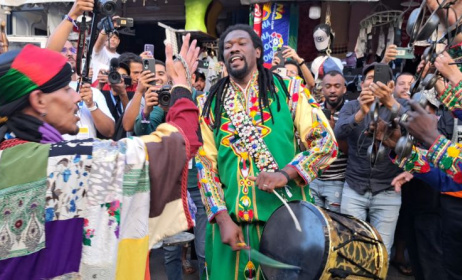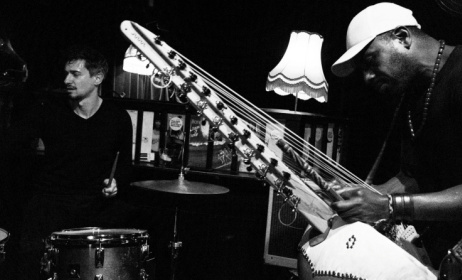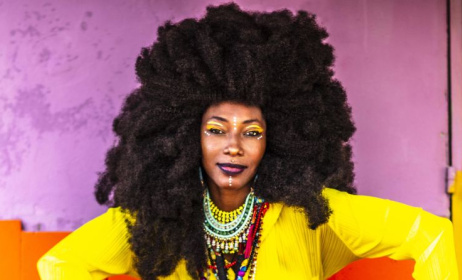African albums top July World Music Charts Europe
African and Afro-inspired albums impressed in the July 2024 World Music Charts Europe, with six making it to the top 20.
 Malian husband-wife duo Amy Sacko and Bassekou Kouyaté. Photo: Ibrahim Kaba
Malian husband-wife duo Amy Sacko and Bassekou Kouyaté. Photo: Ibrahim Kaba
At No 1 is Djudjon by Malian griot couple Bassekou Kouyaté and Amy Sacko, while Ivorian artist Dobet Gnahoré is second with Zouzou. Coming in at No 5 is Maqeda by Ethio-Italian act the Atse Tewodros Project, with L’bnat by Moroccan group Asmaa Hamzaoui & Bnat Timbouktou taking the No 7 spot. Omonile – Son of the Soil by Nigerian musician Atanda is 16th, while Gente by Nancy Vieira from Cape Verde sits at No 20.
Released via One World Records, Djudjon sees Kouyaté and Sacko invite listeners into their musical universe. “The Garana natives invite us to travel to the source where it all began for Kouyaté and his other long-time companion – the West African string instrument ngoni,” One World Records writes. “Kouyaté and Sacko chant to us about their fears and hopes for the future, give philosophical advice, and sing tributes to the Bambara Empire.” Djudjon is the first album by the couple that has been produced in Mali entirely by Malians.
Zouzou, meanwhile, is Dobet Gnahoré’s seventh studio album. A singer, songwriter, dancer and percussionist who has taken the modern Afropop sounds of her country in exciting new directions, Gnahoré is known for her powerful stage presence and rich vocal style. She has earned numerous accolades, including a Grammy Award for Best Urban/Alternative Performance in 2010 for her collaboration with singer India.Arie. Zouzou was produced by Momo Wang, aka Dr Wang, one of Abidjan’s leading producers who has worked with the likes of French-Malian singer Aya Nakamura and coupé-décale artist Ariel Sheney.
Released on 21 June via Galileo Music, Maqeda features Ethiopian and Italian musicians brought together under the Atse Tewodros Project, which was formed in 2010 by Gabriella Ghermandi foster mutual dialogue and artistic creation. A singer, performer and writer, Gabriella Ghermandi, who was born in Addis Ababa in 1965 to an Italian father and Ethiopian mother, is keen to preserve Ethiopia’s oral and musical tradition. “There is so much to explore when it comes to Ethiopian music,” she said.
Ghermandi added: “There are at least eighty different ethnic groups in Ethiopia, each one with different music and rhythms. Some of this music is related to functions of traditional ceremonies that are disappearing, and with them, the music that belongs to these ceremonies will also disappear. In my projects, I love to research and bring out the unknown music from many ethnic groups, to share the amazing variety of Ethiopian musical genres and traditions. I work with musicians who perform on traditional Ethiopian instruments, showing Ethiopian musicians themselves how traditional instruments can dialogue with modern instruments and also with various jazz approaches. As the daughter of an Italian worker and an Ethiopian woman, my parents came together as a result of war. I like to create music with a group that brings together artists from two peoples who fought each other as a form of healing, or practising peace. Above all, I long to bring as much Ethiopian music as possible to the world.”
World Music Charts Europe is compiled on behalf of the World Music Workshop of the European Broadcasting Union from playlists of 44 radio producers in 25 European countries.



































Comments
Log in or register to post comments